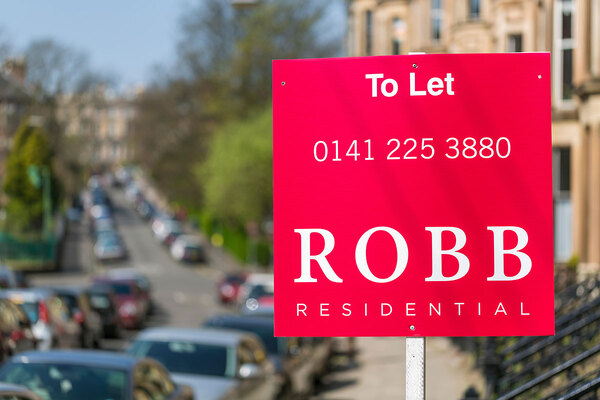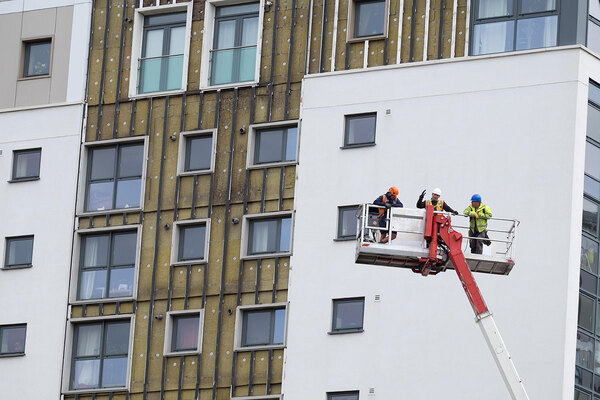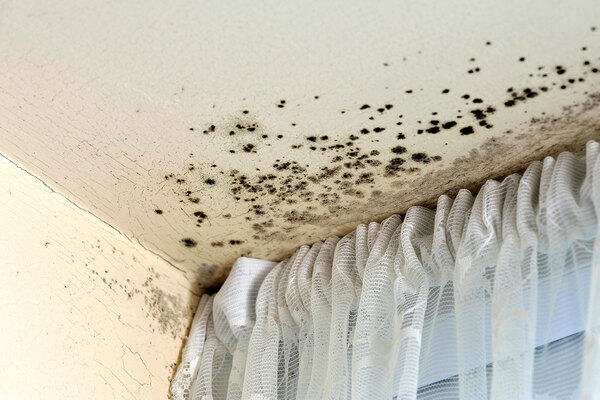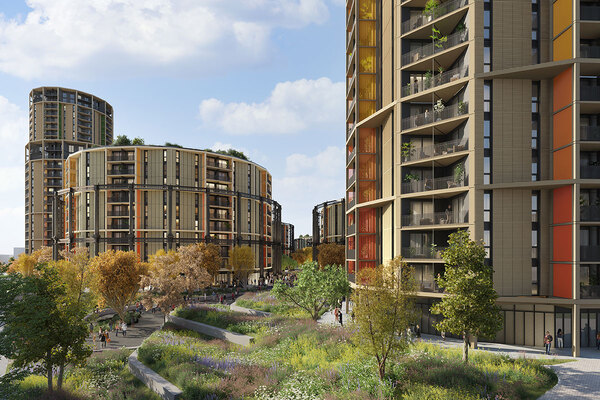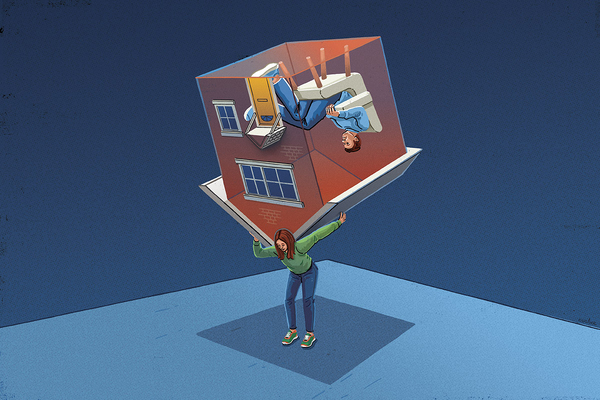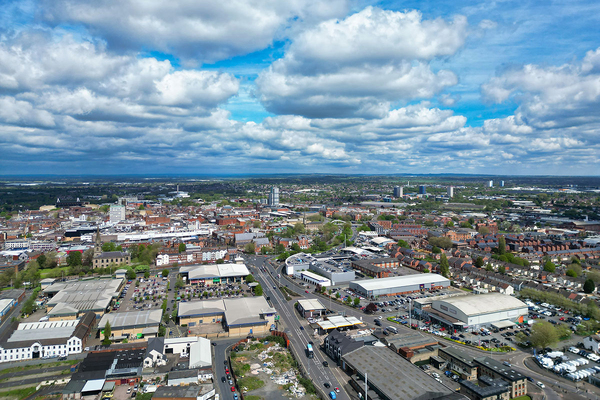Scottish cladding remediation bill passed as SNP declares housing emergency
The Scottish parliament has approved cladding remediation powers, while the SNP government in Holyrood is set to declare a national housing emergency this afternoon.
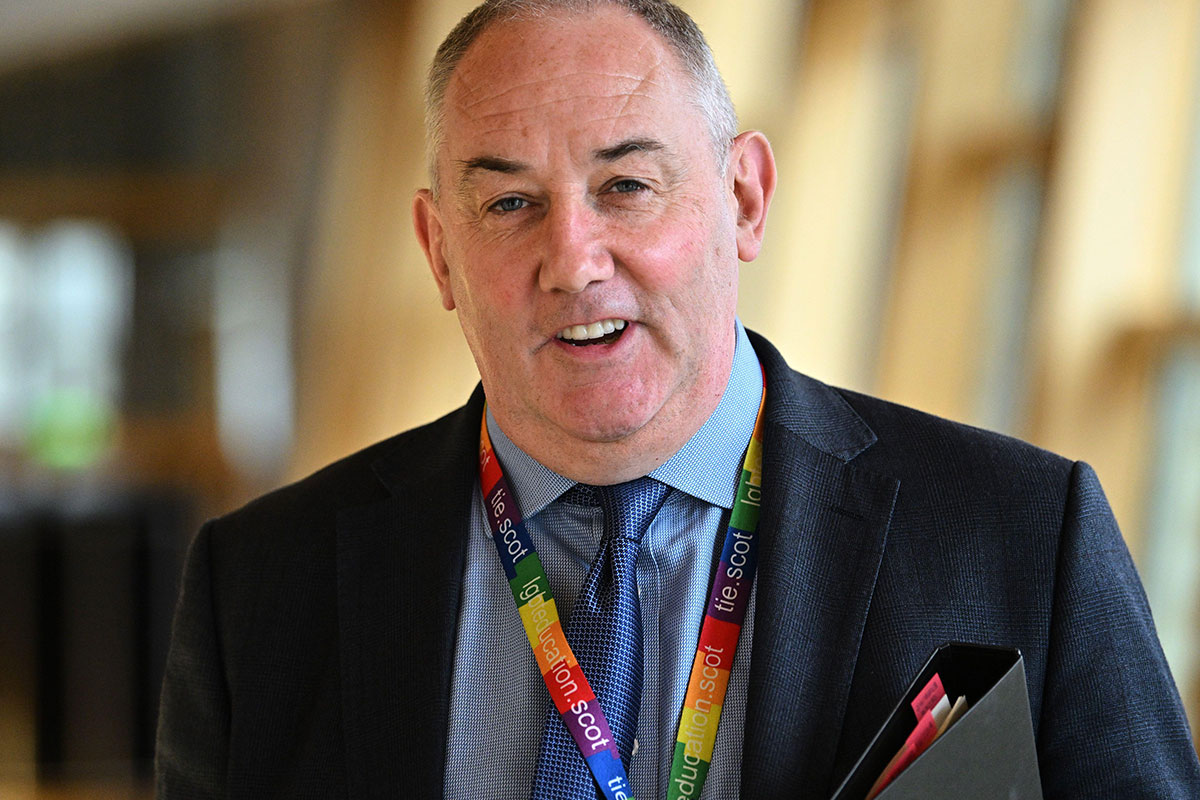
MSPs unanimously approved the Housing (Cladding Remediation) (Scotland) Bill, which gives Scottish ministers powers to assess and remediate buildings which have unsafe cladding, but where the consent of the owners cannot be provided.
The bill will allow the creation of a cladding assurance register to record assessment and remediation works undertaken on buildings.
The government hopes this will make information about cladding repairs easily available. However, the bill allows Scottish ministers to charge for access to the register.
Ministers will also have the power to establish a responsible-developers scheme, to support engagement with developers and encourage them to pay for or carry out remediation work.
Similar to the Responsible Actors Scheme in England, it would set conditions for developers to be members that would encourage remediation works to be undertaken.
Such a scheme would be subject to further consultation, but would probably include an agreement to pay for remediation costs, with sanctions for developers that are eligible but do not join or continue their membership.
In April, the Scottish government secured the power from the UK government to introduce a building safety levy.
During a debate on the housing crisis on Wednesday 15 May, Shirley-Anne Somerville, Scotland’s social justice secretary, will declare a national housing emergency.
Scottish Labour has been seeking to push the government into acknowledging the extent of the housing crisis, after ministers cut almost £200m from Scotland’s affordable housebuilding budget last year.
Ms Somerville will argue the crisis is due to factors outside the Scottish government’s control and will call on the UK government to reverse cuts in Scotland’s capital funding settlement.
Five local authorities in Scotland have already declared housing emergencies amid rising homelessness and a lack of supply, while the Chartered Institute of Housing had also declared a housing emergency in Scotland in March.
Callum Chomczuk, national director of CIH Scotland, said: “The declaration of a housing emergency is a start. But we need an emergency plan and funding for delivering the social homes Scotland needs to address our housing and homelessness emergency.”
Sally Thomas, chief executive of the Scottish Federation of Housing Associations, said the declaration was “a welcome first step on a path out of the housing emergency”.
“We know that can only be achieved through an iron-clad commitment to delivering many more affordable rented homes and, at a minimum, reversing the hammer-blow cut of almost £200m to the affordable housebuilding budget.”
David Melhuish, director of the Scottish Property Federation, welcomed the declaration of a housing emergency, calling it “an important step”.
He said: “This is too big a challenge for the public sector alone to address. The real estate sector is ready to make significant investments into Scottish housing, but we risk losing £3.2bn of direct housing investment, including over 20,000 new rental homes, and some £4.5bn of economic value to Scotland if the [housing] bill persists in its current form.”
Rent controls presented in the bill “will exacerbate and not address Scotland’s housing emergency”, he said.
On the passing of the cladding bill, Scottish housing minister Paul McLennan said the news was “a landmark moment in our efforts to make buildings safer and to safeguard homeowners and residents in buildings identified through the remediation programme as having unsafe cladding”.
He said the law would “allow us to accelerate our work by addressing barriers to assessment and remediation and give homeowners and residents confidence in work carried out”.
Mr McLennan added: “The public commitments already made by many of Scotland’s developers to identify, assess and remediate their buildings mean public money can be focused on buildings without a linked developer.”
Sign up for our Scotland newsletter
Already have an account? Click here to manage your newsletters
